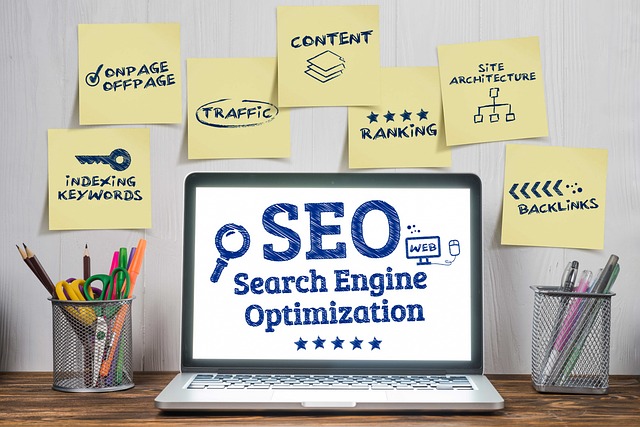Introduction to SEO
In today’s digitally driven landscape, securing an online presence is more critical than ever. Search Engine Optimization (SEO) emerges as a fundamental practice for enhancing your website’s visibility and attracting the right audience. At its core, SEO involves a combination of technical and creative elements to boost rankings, drive traffic, and increase awareness in search engines. Collaborating with a professional SEO company can be invaluable to navigate this complex terrain effectively, providing expertise and insights tailored to your business niche. The SEO landscape is bustling with opportunities for growth, making it essential for businesses of all sizes to engage strategically.
As competition intensifies across industries, a well-executed SEO technique can mean the difference between getting noticed or getting lost online. From small startups to large enterprises, leveraging SEO guarantees that your brand connects with customers at the right time and place. By investing in SEO, businesses boost their visibility and build long-term credibility and trust with their audience.
The Importance of Keywords
Keywords form the backbone of any SEO endeavor. These are the terms and phrases that possible customers utilize to find products, services, or information online. Implementing a focused keyword strategy is crucial to effectively connecting with your target audience. Comprehensive keyword research identifies terms that offer the best balance between search volume and competition. Moreover, long-tail keywords—which are more specific phrases—can draw in a highly qualified audience more likely to convert. You may come up with content that meets the needs and expectations of your audience by having a clear grasp of their search intent, which will increase user satisfaction and engagement.
On-Page Optimization Strategies
On-page optimization refers to various practices you can implement on your website to increase its chances of ranking well in search engines. This includes optimizing individual page elements such as meta tags, URLs, and headers. Meta tags offer a snippet of information about a page’s content and must be optimized with relevant keywords. URLs should be succinct, containing essential keywords to notify both users and search engines about the page’s subject matter. Headers, meanwhile, help to organize content hierarchically, enhancing readability and user experience. With well-executed on-page strategies, search engines can index your site more effectively, leading to better rankings.
The Role of Quality Content
In the SEO world, content reigns supreme. Producing high-quality, engaging content aligns with not just the technical aspects of SEO but also the behavioral elements of audience retention and interaction. Engaging content captivates users and encourages longer dwelling times, reducing bounce rates—a critical metric tracked by search algorithms. It’s not just about weaving keywords into your articles but producing content that genuinely adds value to your audience. For more comprehensive insights on crafting quality content, Moz provides thorough content creation strategies that can be instrumental in shaping your approach.
Understanding Search Engine Algorithms
Search engines like Google typically make use of complex algorithms to decide which content to display first. These algorithms consider various factors—such as relevance, authority, and user experience—when ranking pages. Staying abreast of algorithm updates is essential, as these changes can significantly impact your site’s visibility and organic traffic. Following major updates through credible resources like Search Engine Land, which provides an excellent guide on SEO fundamentals, ensures you can adjust your strategies accordingly to maintain competitive advantages.
Building Backlinks for Authority
Backlinks, or inbound links, refer to external links that direct users from other sites to your website. They serve as endorsements of your site’s content, enhancing its authority and credibility in the eyes of search engines. However, not all backlinks are created equal. Links from reputable, authoritative sites carry more weight than those from low-quality sites. Establishing a strategy to earn high-quality backlinks might involve creating shareable content, engaging in guest blogging, or collaborating with influencers in your industry. Tailoring ethical and white-hat strategies for backlinking not only boosts authority but also ensures sustainable SEO success.
Analyzing and Monitoring SEO Performance
Continuous analysis and monitoring are crucial components of a successful SEO strategy. SEO analytics tools such as Google Analytics and Search Console provide invaluable insights into website performance, user behavior, and keyword effectiveness. Understanding these metrics empowers you to make strategic decisions about what changes might be necessary to improve site performance. Regularly reviewing and interpreting these data allows for strategy adjustments based on trends and outcomes, ultimately enhancing your optimization efforts.
Adapting to SEO Trends
The field of SEO is fluid, with new trends and technologies emerging frequently. Adapting to these trends ensures that your SEO practices do not become obsolete. Current trends include voice search optimization, which necessitates more conversational keyword strategies, and a focus on mobile-first indexing, reflecting the growing use of smartphones for internet browsing. You can stay ahead of the competition and make sure your content reaches and connects with your target audience by consistently modifying your tactics to fit these shifts.
Conclusion
Navigating the ever-evolving world of SEO requires a strategic blend of technical knowledge, creative content development, and adaptability to changing algorithms and trends. From grasping keyword research and on-page optimization to producing quality content and building authoritative backlinks, each component plays a fundamental role in enhancing your site’s visibility and performance. Equally important is the ongoing analysis and refinement of your strategies through performance monitoring tools, which help keep your efforts aligned with user behavior and search engine standards.
Ultimately, successful SEO is not just a one-time effort but a continuous process of exploring, testing, and evolving. Whether you’re a seasoned digital marketer or a business owner taking your first steps into SEO, staying well-informed and responsive to recent developments will position you for long-term success. By implementing the techniques and insights outlined in this guide—and staying agile as the landscape shifts—you can build a strong, sustainable online presence that grows alongside your goals.






Recent Comments